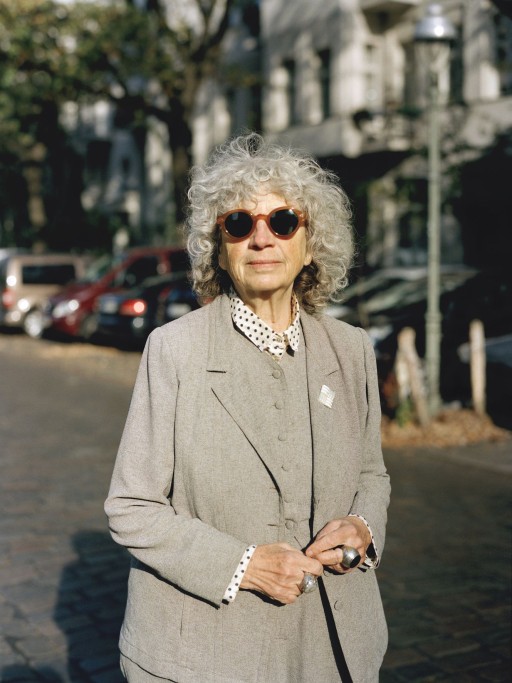Awards
Jan 28, 2020
Berlinale Camera 2020: Tribute to Ulrike Ottinger
Since 1986, the Berlinale has awarded the Berlinale Camera to honour personalities and institutions who have made a special contribution to filmmaking and with whom the festival feels closely connected. In this manner, the Berlinale expresses its appreciation towards those who have become friends and supporters of the festival.

At the 70th Berlin International Film Festival, the director and artist Ulrike Ottinger will be honoured with the Berlinale Camera.
In the 21st century, cinema is becoming an art-form disconnected from reality. Image and sound find their definitive forms in laboratories, and they often distort what had actually been said. The Executive Director Mariette Rissenbeek and the Artistic Director Carlo Chatrian on awarding Ulrike Ottinger: “With the Berlinale Camera, we celebrate artists whose work has always maintained a close relationship between the subjects which comprise cinema and the act of ‘film-making’ itself. In light of this, Ulrike Ottinger is the ideal recipient of an award that bears the word ‘camera’. As a painter, a photographer, an all-round artist, she has always regarded cinema as a form of art which is created and crafted by meeting other people, objects, books, stories, places, sets in which reality makes itself felt. Her latest film Paris Calligrammes is a beautiful autobiography and a captivating journey through time.”
The Berlinale Camera will be awarded to Ulrike Ottinger on Saturday, February 22, at 4.15 pm in the Haus der Berliner Festspiele. The world premiere of Ottinger’s documentary Paris Calligrammes will be presented afterwards in the Berlinale Special.
“A big thank you for such a wonderful prize. Hopefully a miracle will come out of this and my wish that my script will be transformed into a film with moving pictures will be fulfilled,” says Ulrike Ottinger.
Ulrike Ottinger has been one of the most important German filmmakers since the 1970s. In addition to the Berlinale, her films have been shown at numerous international festivals and have received various recognitions, including at the Cinémathèque française in Paris and the Museum of Modern Art in New York. Ottinger's film work comprises 25 short, documentary and feature films. She was awarded the Deutsche Filmpreis (Federal Film Prize) and repeatedly received the German Film Critics Award. In 2011, the Hannah Höch Prize of the City of Berlin was bestowed upon her for an outstanding artistic life’s work. This encompasses not only film, but also theatre directing, painting and photography. Her artistic work has been shown at the Biennale di Venezia, the documenta and the Berlin Biennale.
Ulrike Ottinger initially worked as a freelance artist in Paris before she directed with Tabea Blumenschein in 1972-73 her first film Laokoon & Söhne (Laocoon & Sons). She then moved to Berlin, where she still lives today. Beginning in 1979, she realised her “Berlin Trilogy”: Bildnis einer Trinkerin (Portrait of a Female Drunkard. Ticket of No Return), Freak Orlando and Dorian Gray im Spiegel der Boulevardpresse (Dorian Gray in the Mirror of the Yellow Press). A series of long documentaries followed, such as China. Die Künste – Der Alltag and Taiga, works which were created when travelling through Asian countries. In Countdown she applied a comparable ethnographic perspective to a Berlin between the fall of the Berlin Wall and the reunification. In her longest documentary so far, Chamissos Schatten (Chamisso’s Shadow) from 2016, Ulrike Ottinger embarks upon a voyage for several months, tracing the course of Adelbert von Chamisso through the Bering Sea.
Chamissos Schatten is just one of a dozen of Ottinger’s films which were invited to the Berlinale during her career. The majority ran in the Forum, Johanna D’Arc of Mongolia (Joan of Arc of Mongolia) competed in the Competition in 1989. Her first Berlinale contribution, Dorian Gray im Spiegel der Boulevardpresse from 1984, ran again last year in the context of the Retrospective “Self-determined - Perspectives of women filmmakers”.
The Berlinale Camera consists of 128 individual parts and depicts a real film camera. It is manufactured by the Düsseldorf goldsmith and artist Georg Hornemann.
Press Office
January 28, 2020